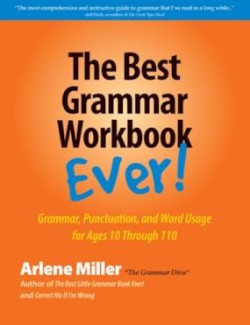 There is difference between like and as if. However, no one pays much attention to it anymore except the most “conservative” of us grammar people.
There is difference between like and as if. However, no one pays much attention to it anymore except the most “conservative” of us grammar people.
Here is the standard:
Like is a preposition. That means it has an object. Objects are nouns or pronouns: He acts like a clown.
As if/as is a conjunction and is used before a clause. A clause contains a subject and a verb: He acts as if he thinks he is funny.
Easy, right?
I guess the whole thing started with that old cigarette ad that some of you might remember (this is back when TVs were black and white and showed cigarette commercials): Winston tastes good like a cigarette should.
Now, going by the “rules,” the correct way to say this is Winston tastes good as a cigarette should. (Or Winston tastes like a cigarette!)
Winston tastes good as a cigarette should doesn’t even sound right, does it? I am not sure if it sounds a little off because we are so used to hearing it said and seeing it written “wrong,” or if it just doesn’t sound quite right. In fact, when I am copyediting, I sometimes let the “incorrect” like go if I feel that it actually sounds better in a certain sentence — this is certainly true in dialogue, but even in fictional (mostly) narrative. In nonfiction, I am more likely to stick with the standards.
Well, here is a fly in the ointment: A simile is a comparison using like or as. You might remember that from school. You were probably learning the difference between similes and metaphors. Metaphors are comparisons without like or as.
Here are some idiomatic similes:
Blind as a bat.
Dumb as a rock.
Sharp as a tack.
Quiet as a mouse.
She slept like a log.
He eats like a pig.
He slept like a baby.
Very odd. Most of the common ones we know use as — and begin with an adjective — even though there is just a noun (not a clause) after them. And the ones at the end of the list — the ones that use like — are still followed by just a noun, but notice that they have a subject and verb in front of them — they are complete sentence similes. I don’t know why, or if there is a “why.” I haven’t found the why yet, and I think it would take quite a bit of research to find it.
We could talk about the “missing” verb. Here is an example of what I mean by a missing verb:
- She likes chocolate more than me. (She likes chocolate more than she likes me.)
- She likes chocolate more than I. (She likes chocolate more than I do.)
The missing verb in the similes using as is is:
- Blind as a bat is.
- Dumb as a rock is.
- Sharp as a tack is.
- Quiet as a mouse is.
The missing verb in the similes using like are action verbs:
- She slept like a log sleeps. (She slept as if she were a log!)
- He eats like a pig eats. (He eats as if he were a pig!)
- He slept like a baby sleeps. (He slept as if he were a baby!)
Interesting food for thought. Any opinions?
As a final piece of advice, as a grammarian, I would try to stick by the standards in my writing. Like is a simple comparison followed by a noun or pronoun. As/as if is a conjunction and is followed by a subject and a verb.
Grammar Diva News
So, does anyone know how to win a fight with Amazon, who runs the world? Here is the issue I have been dealing with:
The Best Grammar Workbook Ever!
The Best Grammar Workbook Ever!
As you can see, the first link goes to a page where it says the book is not eligible for Amazon Prime, and the book is sold by a third-party seller. You get here by searching on Amazon for the title of the book.
The second link goes to a page where it says the book is eligible for Prime, sold by Amazon, is over a dollar less expensive, and is shipped more quickly. You get here by searching Amazon for grammar workbooks and limiting the search to Prime.
Which one would you buy? So I have been talking to Amazon for days, and no one can explain the Amazon algorithms to me. All I know is people buy Amazon Prime, and they don’t want to go clicking around to find it, so this is bad for my sales. This is my bestselling book. It is the ONLY one of my books not obviously Prime. And it is the ONLY grammar workbook that shows up on the first page of a grammar workbook search that is not immediately and obviously Prime.
The reason given to me is that Amazon gives the Buy Box to any seller who gives a better customer experience. Do you think paying more and waiting longer for shipping is a better experience? I don’t either.
Does anyone know how to win a war with Amazon?
Well, anyway, if you want that grammar book, I would suggest you follow the second link!




Arlene,
So glad you tackled this one — and discussed it very helpfully. As for Amazon, I’ve been “dealing” with them for almost as long as they’ve been around and still cannot figure out their “customer service”! In their early days, you could actually talk to a human person, but not so much now — and they now live just a few miles from my office. One day I’m going to stop in and say “hello” and see if a robot answers.
Val
Thanks so much for the comment, Val. I appreciate your comments on Amazon. The CreateSpace branch is very easy to talk with. And I have always talked with people there, although they don’t answer policy questions or change their policy. They are definitely not able to “read” at all. And they started out as booksellers! It is frustrating because they are so big you can’t fight them. If you stop in, say HI for me!!
Well, this will help me remember the difference now.
The ad that ruined grammar for me was the “Got milk?”
Thanks for the comment. Have milk????
The Winston ad – what a “blast from the (long-ago) past”!
Here’s some fun trivia – http://www.todayifoundout.com/index.php/2012/02/to-boldly-go-where-no-one-has-gone-before-is-thought-to-have-been-inspired-by-a-line-from-a-white-house-pamphlet-on-space/ – about the source of “to boldly go,” which includes some commentary on the split infinitive in it…
Cheers,
Rosina
You are always the source of great information. Thanks for the link!
Ha,ha,haaaaa!!! Of course I don’t have an answer to the War against Amazon question… but I definitely agree with you, Arlene, on the clear diffference between like and as/as if.
Go grammarians, go!!!!!
See you later, with more “trying to speak and write correctly war”
Alejandra…from faraway Argentina
Thank you for the comment! And greetings to Argentina!! I have not been there, but my daughter has and is going there again this year.
Would love it if you could get everybody to like stop like putting like after like every like 1-3 words. There are a couple of podcasts that I have stopped listening to because the host and the guest, both highly educated people, cannot stop doing this. They should read an unedited transcript of their conversations sometime!
I agree with you! I taught 7th grade, and I don’t think my students could utter a word if they couldn’t use “like.” They would be tongue-tied! But they are 7th graders; these are professional talkers! Shame on them!
You know like man.
Call customer service number and they will call you back immediately.
If only it were that simple. Now they are calling me – not just calling me back – for the past two days, and we have 30-minute conversations! I know when I get a call from Seattle, it is Amazon, so I answer the phone! They understand, but they cannot change it or explain it to me.
Thank you! I grew up in a family of stuffy grammarians who made great fun of Winston’s ad’s stupidity.
I think that’s why it’s easy for me to remember the correct usage!
You are welcome! I didn’t grow up with grammarians, but I remember the ad and the more recent fallout of that ad — and of course the Star Trek split infinitive – to boldly go!